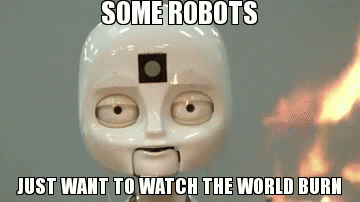Looking for a book to hone your programming skills or learn something new about development-unrelated topics? Maybe you want to find out about some fiction works to read in your spare time? If the answer is yes, then I am thrilled to welcome you to my new series "BookBoom", during which I will try and present you to the point reviews of different kinds of books, both fictional and non-fictional, both technical and non-technical. Life is not only about programming, so I will try to be as broad as possible.
The first book that we are going to talk about is "Machines that Think: Everything you need to know about the coming age of artificial intelligence" by NewScientist.
Target audience
NewScientist wants to bring AI to the mainstream with this book, and I really think they succeeded. Very little (to none) technical expertise is required in order to grasp the concepts covered by the book. It provides a comprehensive and easy-to-read introduction to what AI has been over the decades, what is it today and what it can become.
Content
While you cannot consider yourself an "instant expert" after reading this book, I personally have learnt a lot of basic details about one of the hottest subjects right now. The book provides really good insights about the old days of artificial intelligence, its stagnation and its "renaissance" in the last decades and, most importantly, what it has become and what it can become in the future. While literal robot overlords are far from being created, the real and current risks of artificial intelligence are concisely and eloquently presented.
Strong points
The book cites some past conversations with experts from the field which I really enjoyed reading. It also provides a very good amount of technical and historical background, starting from the 1950s and extremely interesting insights of current-day AIs.
Its strongest point, however, was its inspiring bottom line: "If we get it right, AI will make us all healthier, wealthier and wiser. If we get it wrong, it could be one of the worst mistakes we ever get to make", which pretty much summarizes how artificial intelligence can affect the world.
Weak points
Because the book was published in 2017, some aspects of it may be outdated, as I sadly discovered while trying to access Chef Watson. I also felt that some of the subjects could have been explored a little bit further during some parts of the book.
Conclusion - 9/10
All in all, the book is a very engaging read and I can give it a solid 9 out of 10. It is a very simple introduction for those interested in AI, providing some great information on the technology that already affects all of us and if you want to delve into the subject, I strongly suggest this book as a starting point.
That's it for this article. Feel free to continue the discussion and give your feedback in the comments section. If you liked this article, you should take a look at some of my other articles:









Top comments (0)